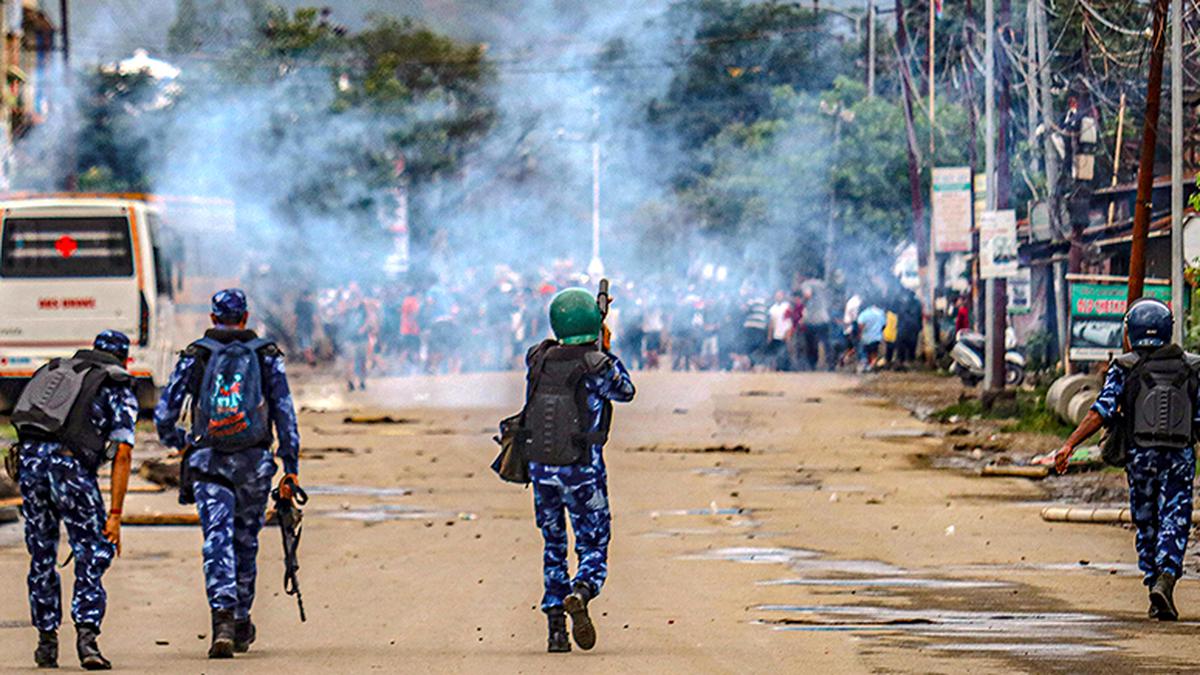
Morning Digest | Manipur violence: A year on, FIRs reduced to 3,000 from 11,000; Raj Bhavan employee accuses West Bengal Governor of sexual harassment, and more
The Hindu
The Hindu Morning Digest gives a select list of stories to start the day. Read the top news today on May 3, 2024
Manipur violence | A year on, number of FIRs brought down from 11,000 to 3,000
A year after ethnic violence erupted in Manipur, the clean-up of records has brought down the total number of violence-related First Information Reports (FIRs) from over 11,000 to around 3,000, a government source told The Hindu .The number of cases had shot up due to overlap, several duplicate FIRs for the same incident and thousands of Zero FIRs, the official said.
Raj Bhavan employee accuses West Bengal Governor of sexual harassment
An employee at the Raj Bhavan in Kolkata on Thursday alleged that she was sexually harassed by West Bengal Governor C.V. Ananda Bose. The woman also lodged a complaint at the Hare Street police station in Kolkata. The development came hours before Prime Minister Narendra Modi was scheduled to arrive at the Raj Bhavan for a night stay. He is scheduled to address three election rallies in West Bengal on Friday.
Election Commission asks political parties to stop registering voters for post-poll welfare schemes
The Election Commission (EC) on Thursday directed all political parties to cease enrolling or registering voters for post-election beneficiary-oriented schemes under the “guise of surveys”, saying it amounts to corrupt practice under election law. The poll body said some political parties and candidates have been engaging in activities that blur the lines between legitimate surveys and partisan efforts to register individuals for post-election beneficiary-oriented schemes.
In India, all vaccine-related AEFI are routinely monitored and COVID is no exception, says health expert

“Writing, in general, is a very solitary process,” says Yauvanika Chopra, Associate Director at The New India Foundation (NIF), which, earlier this year, announced the 12th edition of its NIF Book Fellowships for research and scholarship about Indian history after Independence. While authors, in general, are built for it, it can still get very lonely, says Chopra, pointing out that the fellowship’s community support is as valuable as the monetary benefits it offers. “There is a solid community of NIF fellows, trustees, language experts, jury members, all of whom are incredibly competent,” she says. “They really help make authors feel supported from manuscript to publication, so you never feel like you’re struggling through isolation.”

Several principals of government and private schools in Delhi on Tuesday said the Directorate of Education (DoE) circular from a day earlier, directing schools to conduct classes in ‘hybrid’ mode, had caused confusion regarding day-to-day operations as they did not know how many students would return to school from Wednesday and how would teachers instruct in two modes — online and in person — at once. The DoE circular on Monday had also stated that the option to “exercise online mode of education, wherever available, shall vest with the students and their guardians”. Several schoolteachers also expressed confusion regarding the DoE order. A government schoolteacher said he was unsure of how to cope with the resumption of physical classes, given that the order directing government offices to ensure that 50% of the employees work from home is still in place. On Monday, the Commission for Air Quality Management in the National Capital Region and Adjoining Areas (CAQM) had, on the orders of the Supreme Court, directed schools in Delhi-NCR to shift classes to the hybrid mode, following which the DoE had issued the circular. The court had urged the Centre’s pollution watchdog to consider restarting physical classes due to many students missing out on the mid-day meals and lacking the necessary means to attend classes online. The CAQM had, on November 20, asked schools in Delhi-NCR to shift to the online mode of teaching.









